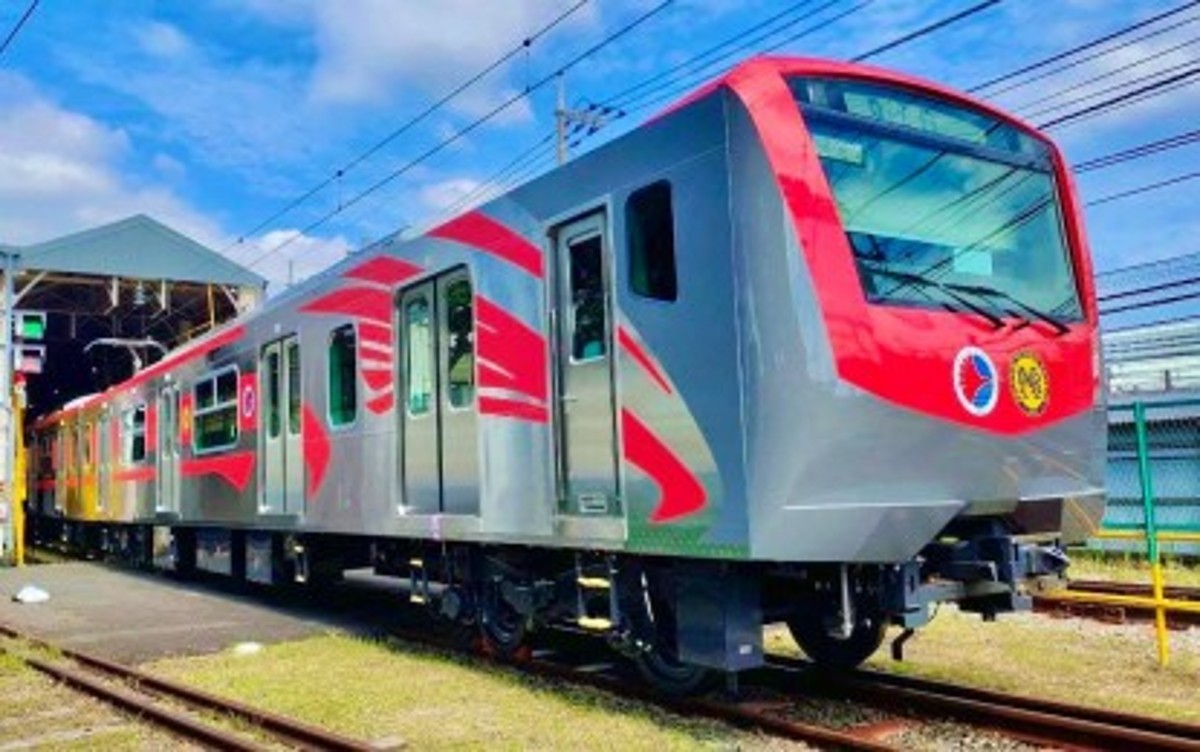After withdrawing from funding negotiations with China for the Subic-Clark railway project, the Philippines is now exploring alternative financing avenues with the support of the United States and Japan, according to a top official overseeing the initiative.
Delfin Lorenzana, chairperson of the Bases Conversion and Development Authority, revealed plans to seek investment from the US and Japan for the 50-billion-peso (US$868 million) railway project.
The proposed railway will connect former US military bases, now transformed into commercial hubs, and is envisioned as a key component of the Luzon Economic Corridor — a joint economic endeavor between the US, Japan, and the Philippines, conceived during a recent trilateral summit at the White House.
In an interview, Lorenzana expressed hope that the US and Japan would invest in the project, underscoring its significance in boosting connectivity and economic cooperation.
The decision to seek alternative financing comes after Manila announced last year that it would no longer pursue Chinese loans for three major projects, including the Subic-Clark railway, citing a lack of progress in negotiations and escalating tension over maritime disputes in the South China Sea.
Tension between the Philippines and China has intensified in recent months, particularly in the South China Sea, where Chinese actions have been perceived as attempts to deter Manila from strengthening its ties with Washington.
A focal point of this tension is the BRP Sierra Madre, a World War II-era vessel grounded by the Philippines in the disputed Second Thomas Shoal, which now serves as an outpost.
Chinese coast guard vessels have repeatedly engaged in aggressive action against Philippine boats near the Sierra Madre, further straining bilateral relations.
Meanwhile, during their April 11 meeting, President Joe Biden of the United States, Prime Minister Fumio Kishida of Japan, and Philippine President Ferdinand Marcos Jr. launched the Luzon Economic Corridor.
A trilateral event aimed at promoting investment in the project is scheduled to take place at the US-led Indo-Pacific Business Forum in Manila in May.
With ambitious goals to attract around US$100 billion in investments over the next five to ten years, the Subic-Clark railway project is positioned to enhance connectivity between Subic Bay, Clark, Manila, and Batangas province in Luzon.
The initiative aims to accelerate infrastructure development, including rail networks, ports, clean energy solutions, semiconductor supply chains, and agribusiness ventures.
Lorenzana said that the Philippines remains dedicated to the Subic-Clark railway project and expressed confidence in the potential involvement of the US and Japan, citing his preference for their participation in the endeavor.
Why Did The Philippines Opt To Withdraw From A Funding Agreement With China?
The Philippines, aiming to rejuvenate its infrastructure amidst years of neglect, once looked to Beijing for funding support, particularly for new rail projects. However, by the end of 2023, the Philippine government had a change of heart.
Manila decided to forego a previously sought-after loan of US$798.5 million from China’s state-run Export-Import Bank for the Subic-Clark railway project, as well as canceling other projects valued at a total of US$5 billion.

This move underscored the deteriorating relationship between Manila and Beijing, partly due to disputes over territory in the South China Sea.
While the Philippine government attributed the cancellations to China’s sluggishness in providing financing rather than the maritime disputes, observers speculated that Manila’s firm stance in contested waters led to China withholding its financial commitments.
In recent years, China has ramped up its assertion of “historic rights” in the disputed waters, impeding Filipino fishermen’s access to vital fishing grounds.
Beijing’s refusal to acknowledge The Hague’s 2016 arbitral ruling, which favored Filipino rights in the region, further exacerbates tension. The lack of a definitive ruling on sovereignty leaves access to these waters subject to Chinese control, heightening Manila’s concerns over its maritime sovereignty.
Way back in July 2023, a Chinese foreign ministry spokesperson said the so-called award in the South China Sea arbitration violated international law, including the United Nations Convention on the Law of the Sea (UNCLOS), and was illegal, null, and void. China neither accepted nor recognized it.
Beyond geopolitical considerations, Filipino apprehensions about Chinese investment extend to issues of transparency, environmental standards, and labor practices.
Criticisms have emerged regarding the preferential treatment of Chinese workers over local laborers, raising questions about the long-term implications of Chinese capital and influence on Philippine infrastructure projects.
As Manila seeks alternative financing avenues, attention turns to potential partnerships with Japan, the United States, South Korea, and India.
President Marcos Jnr’s administration is exploring opportunities for collaboration with these nations, as well as international financial institutions like the World Bank and the Asian Development Bank, to realize its infrastructure ambitions while navigating the complexities of regional geopolitics and economic development.
- Contact the author at ashishmichel(at)gmail.com
- Follow EurAsian Times on Google News




